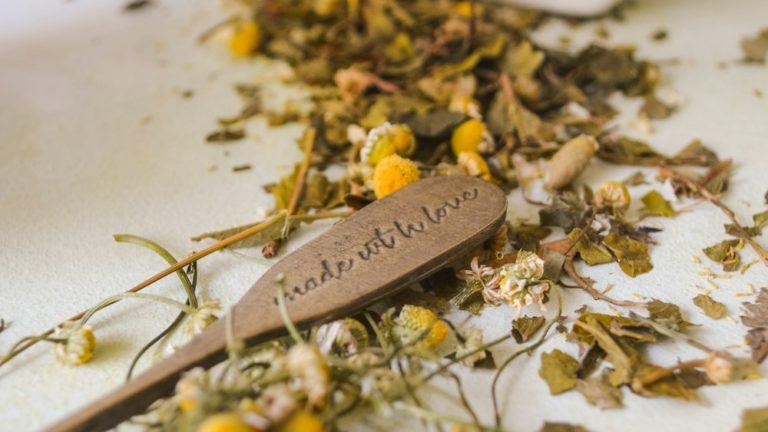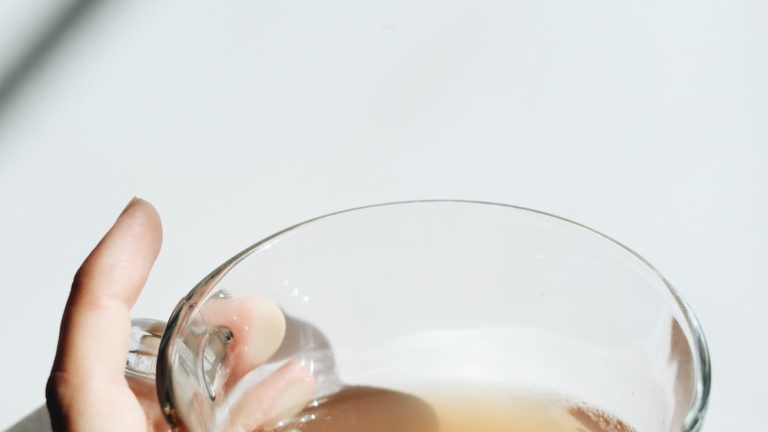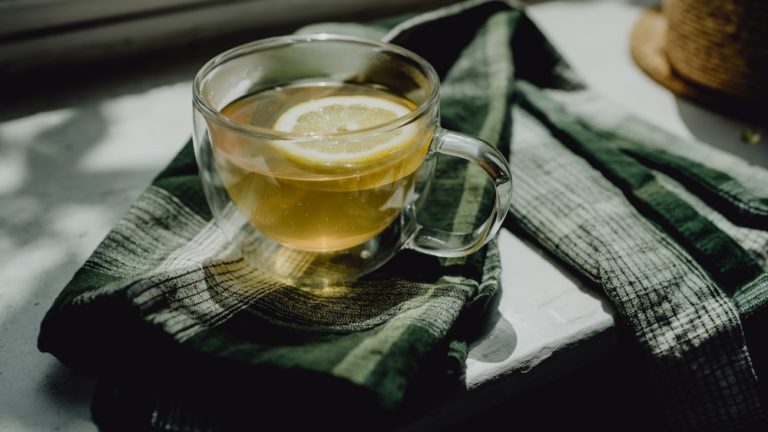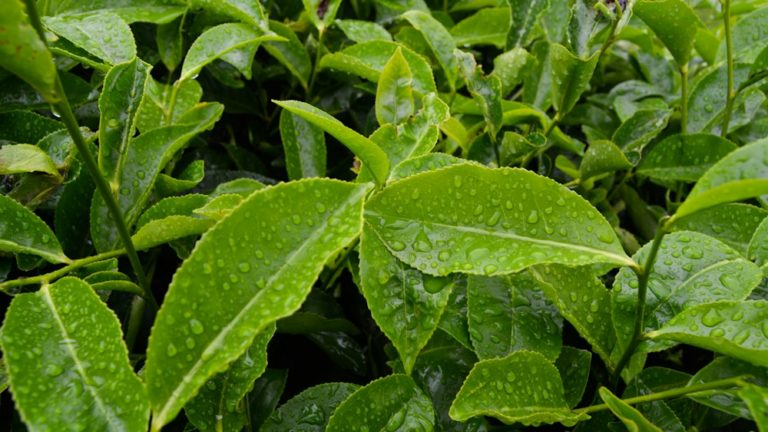Yellow Tea For Constipation: Relief And Benefits

Yellow Tea For Constipation: Relief And Benefits
Have you ever been trapped in the labyrinth of constipation, treading the same, uncomfortable path day after day? Let’s brew a little enlightenment with a cup of something golden – yes, yellow tea for constipation. A treasure trove of digestive delight, this liquid remedy might just be your ticket to regularity city.
Key Points:
- Yellow tea is a rare and precious brew nestled between green and oolong tea.
- It has a unique fermentation process that gives it a characteristic smooth flavor and yellow hue.
- Yellow tea has been historically used for digestive health, particularly for alleviating constipation.
- It can help alleviate constipation by encouraging gentle movement in the intestines and stimulating the digestive system.
- The active compounds in yellow tea, such as catechins and theobromine, aid in digestion and promote gut health.
- Best practices for brewing yellow tea include using fresh, purified water and heating the water to 70-80°C, and optimal consumption times include in the morning, post-meal, and before bedtime.
- Yellow tea is generally safe for most tea lovers, but caution is advised for pregnant women, young children, and those with certain medical conditions.
In the serene world of teas, a newcomer is gently unfurling its leaves to the limelight. Yellow tea, both delicate and demure, is waltzing its way into the cupboards of tea aficionados and the wellness-conscious alike. But hold on, it’s not just about sophisticated palates; we’re onto something that doubles as a health elixir, particularly where our oh-so-important digestive tract is concerned.
So let’s pour ourselves a steaming cup of insight and take a sip of the tale of yellow tea. Through a casual stroll along its historical lanes and a peek into its potent compounds, we’ll explore how this aromatic brew can offer sweet relief from the grips of constipation. And hey, I promise not to make this trip a snore fest – we’re brewing up a concoction of humor, irony, and, most of all, the warmth of connection over a shared love for tea.
The Basics of Yellow Tea
Elevate your senses and prepare for a light-hearted yet enlightening journey into the world of yellow tea. This is where tradition meets tranquility, and where each leaf whispers a thousand-year-old secret. Before diving into how this liquid gold can alleviate our most bothersome belly woes, it’s pivotal to wrap our heads around the basics.
What is Yellow Tea?
What, pray tell, is this yellow tea you speak of, and why does it sound like it’s the next character in Alice in Wonderland? Well, my curious friends, yellow tea is a rare and precious brew, nestled comfortably between green and oolong tea. It’s often likened to green tea’s sophisticated cousin who went abroad and came back with a posh accent.
The signature feather in yellow tea’s cap is its unique fermentation process. The leaves go through a mellowing phase that gifts the tea with its characteristic smooth flavor and, of course, the eponymous yellow hue. It’s like the leaves had a spa day, emerging rejuvenated with a glow that only proper pampering can provide.
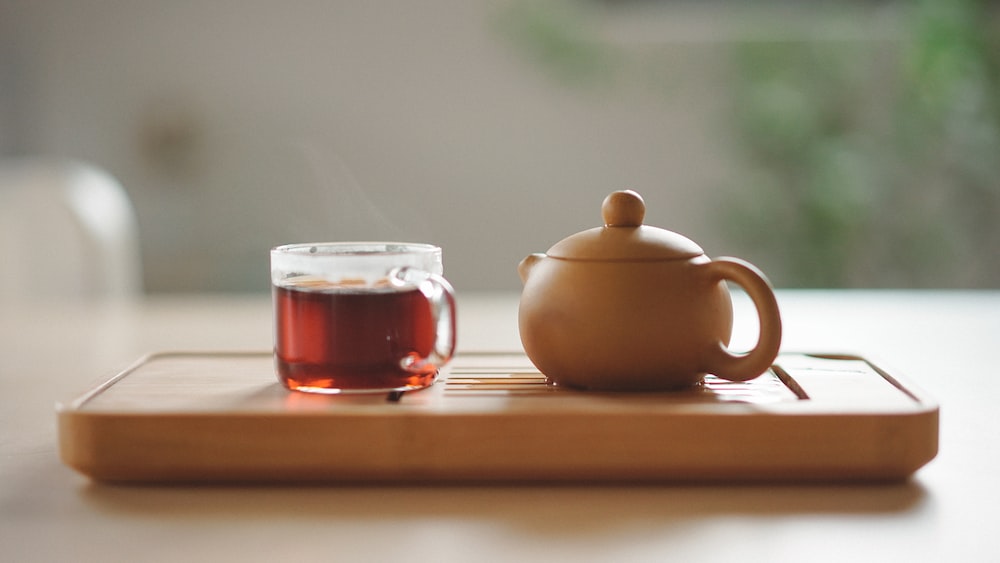
Yellow tea is a rare and precious brew with a unique fermentation process that gives it a smooth flavor and distinctive yellow hue, likened to green tea’s sophisticated cousin.
Historical Use of Yellow Tea for Digestive Health
Hop into our time machine, we’re taking a jaunt through history! Yellow tea may seem like the new kid on the block for some of us, but it’s been a staple in the Eastern tea culture for centuries. Traditionally, it was the beverage of choice for not only enjoying a tranquil moment but also as an imbibed ailment ally.
Legends, or shall we say tummy tales, whisper of emperors and commoners alike turning to yellow tea for its digestive soothing superpowers. Studies nestled in the annals of history suggest that this golden brew was a go-to digestion-promoting potion, particularly esteemed for alleviating tummy troubles that range from minor bloating to the more formidable foe, constipation.
Yellow Tea and Constipation Relief
Amidst the plethora of options for battling the bloat and subduing the surly beast of constipation, could yellow tea offer a gentler, more nurturing path to relief? Spoiler alert: The odds are in favor of this warm, amber-hued ally.
How Yellow Tea Can Alleviate Constipation
Gather round, loyal tea troopers, as we march into the details of how yellow tea for constipation can work its magic from the inside out. No sorcery here, just good old-fashioned botanical benefits packing a punch against pesky constipation.
First off, imagine this soothing brew coating your inner workings like a balm. The warmth of the tea itself encourages gentle movement in your intestines, waving the checkered flag for digestion to get back in the race. On top of that, yellow tea is kinder on the tum than, say, that jitter juice we all love, coffee, which can sometimes lead to dehydration – another archenemy of regular bowel movements.
Now here’s the kicker – it’s not just the tea’s warmth stirring the pot. The active compounds are greasing the tracks, too. Specific substances in yellow tea are thought to stimulate the digestive system, coaxing it back to its natural rhythm like a whisper to a grumpy cat, persuading it to stop lazing around under the bed (metaphorically speaking, of course).
Active Compounds in Yellow Tea Aiding Digestion
When you delve into the nuances of yellow tea for constipation, it’s all about the chemistry, baby! Yes, like a well-versed conductor of an orchestra, the active compounds in yellow tea orchestrate a symphony of digestive assistance.
Catechins, those potent antioxidants, play first violin, creating harmonious anti-inflammatory melodies that may help reduce any gut discomfort. Then, theobromine, with its subtle stimulant properties, is akin to the bongo drums gently encouraging intestinal contractions – not as aggressively as bisacodyl, a common laxative, but consider it a caring nudge rather than a forceful shove.
Lastly, let’s not forget our friend polyphenols. These bioactive compounds are like the backup singers, supporting overall gut health and campaigning for balance in this intimate digestive dance. Together, these elements make yellow tea a nuanced option for those seeking constipation relief without the overpowering cramps or urgency that some interventions might bring.
The active compounds in yellow tea orchestrate a symphony of digestive assistance, providing constipation relief without overpowering cramps or urgency.
Preparing Yellow Tea for Maximum Benefits
Making a perfect cup of yellow tea is akin to crafting a bespoke suit; it demands attention to detail and a dollop of patience to extract the full spectrum of benefits – particularly when aiming to soften the hard edges of constipation.
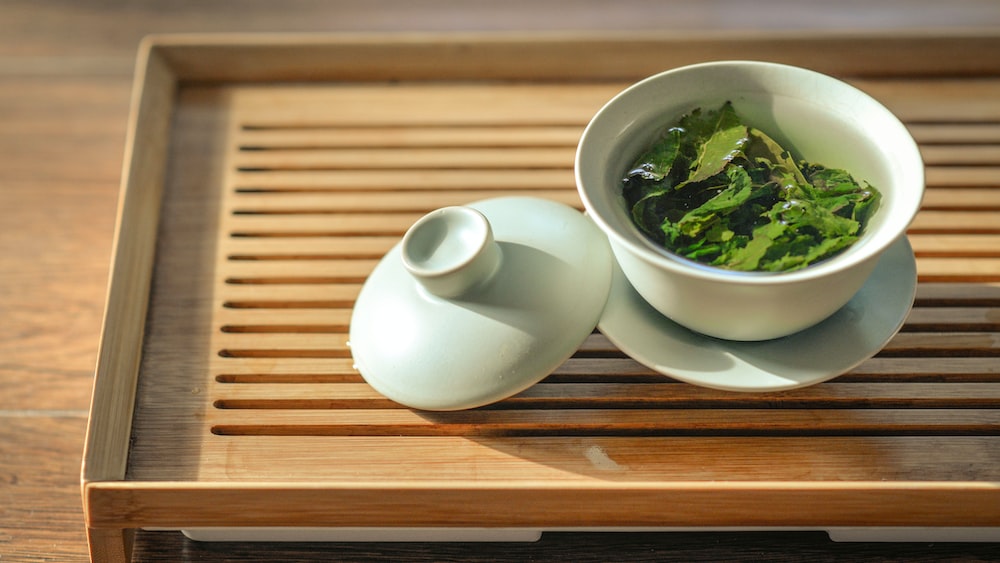
Best Practices for Brewing Yellow Tea
Precision is the name of the game when brewing yellow tea. So before you go tossing tea leaves into a raging cauldron of boiling water, let’s agree on the best practices as if we were elves writing the ultimate tea handbook.
- Use fresh, purified water – did you know that poor water quality can take our esteemed yellow tea from a noble to a no-go? Nobody wants that.
- Heat the water just until the first small bubbles begin to dance – that’s 70-80°C (158-176°F) for the numerically inclined among us.
- Be gentle, dear tea preparer. Let the leaves revel in the warm bath for about two to three minutes. This is a ritual, not a race.
These steps ensure that each cup of yellow tea manages to keep its allure of delicateness, while still packing the punch needed to ease our digestive dismay.
Optimal Consumption Times for Digestive Health
Wondering about the best time to court your cup of yellow tea? Let’s not get all tangled in time, but there is a bit of art to the science here. When exactly should you invite this liquid liberator into your routine to play its role in relieving constipation?
- Begin your day: Greet the morning light with a cup to kickstart your digestive system. Consider it an elegant alarm clock for your intestines.
- Post-meal: To aid in smoothing out digestive kinks, indulge in a cup about 30 minutes after meals. Your gut will thank you with grateful regularity.
- Before bedtime: A quieting mug of yellow tea at night can help nurture a calm digestive system, setting the stage for a more peaceful process by dawn.
Now remember, while these times might be optimal, your own digestive system’s clock may differ. Listening to your body might lead to adjustments in your tea-time – and that’s just fine!
The best time to drink yellow tea is in the morning to kickstart your digestive system, 30 minutes after meals to aid in digestion, and before bedtime to nurture a calm digestive system.
Potential Side Effects and Considerations
Even amidst the glowing reviews of yellow tea for constipation, it’s important to approach our leafy helper with informed caution and an understanding of possible repercussions. Our aim is to promote digestive harmony, not to compose chaos.
When to Be Cautious with Yellow Tea
Alas, not all constitutions sing in harmony with the notes of yellow tea. In the interest of health and harmony, we must advocate for caution under certain circumstances.
- Pregnancy: Expectant tea lovers should seek guidance from their doctor before integrating yellow tea into their daily routine.
- Dehydration: Those prone to dehydration must remember: tea is diuretic, and we must counter this effect with adequate water intake.
In brief, the idea is to ensure yellow tea for constipation is a fitting selection for your personal health chorus, not a dissonant note that strains the melody.
Understanding the Limits of Herbal Remedies
Ah, the siren call of herbal remedies – potent, appealing, but not without borders. Let’s unfurl the reality that no tea, not even our venerable yellow tea, can claim universal cure-all status. Here’s a dose of insight:
- While yellow tea can be a savvy sidekick in your quest for digestive ease, it’s by no means a replacement for other important health behaviors, such as proper fluid intake and a balanced diet.
- Also, remember that yellow tea for constipation, while beneficial, is part of a larger narrative. Think of it like adding the perfect scarf to an outfit – it accentuates the good but doesn’t solve every style woe.
As with all things in the spanning spectrum of health, it’s crucial to recognize our herbal friend’s party tricks and where its talents end. Feeling out of your depth? That’s okay! Seeking advice from trusted healthcare professionals can ensure that your tea-drinking habits are conducive to your health, not counterproductive.
Comparing Yellow Tea to Other Constipation Remedies
When we tilt our cups to whisper our body’s grievances, particularly about the oh-so-stubborn issue of constipation, the tea world hears us and offers a spectrum of remedial brews. It’s really a sort of botanical pageantry, where varieties like green tea, black tea, and herbal tea line up to offer their services. Here, amidst the mélange of tannins and caffeine, we delve into a comparison of yellow tea for constipation against other common remedies, with our inquisitive tea-loving spirit and a dash of humor to sweeten the pot.
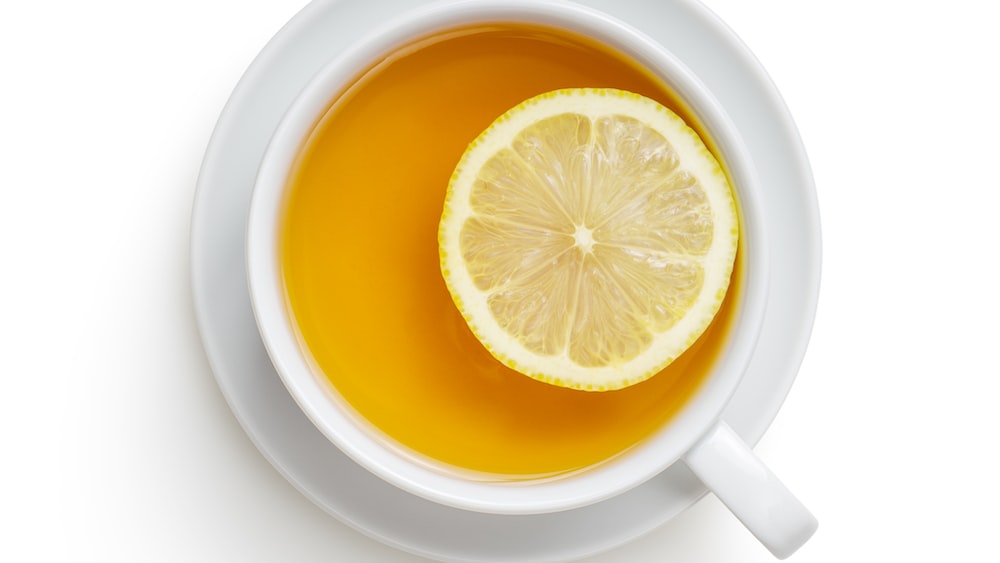
Herbal Teas vs. Yellow Tea
In the bustling tea party dedicated to easing those intestines that seem more stubborn than a cat on a comfy couch, herbal teas play fairy godmothers to our Cinderella tums. They prance around with herbs like senna, which acts like a whip-cracking gym coach for your colon. But yellow tea? Ah, that’s the genteel grandmaster – think of it like a soft-spoken librarian who guides your insides to a world of serene relief.
Yellow tea, often the wallflower at this digestion-promoting shin-dig, actually dances quite elegantly with your digestive tract. It comes with less fanfare than the zesty peppermint or bold senna-infused herbal teas, but it holds its own with a cadre of subtle, palate-pleasing notes and a gentle nudge toward regularity. Remember, not all heroes wear capes – some come swaddled in delicate, golden hues.
While the chorus line of chai tea and white tea might cheerfully belt out promises of digestive delight, yellow tea delivers a performance that’s long been revered. This tea is steeped in history, linking arms with ancient practices, and whispers of its digestive benefits are sung through the scrolls of time.
Yellow tea is a gentle, yet powerful digestive aid that holds its own with subtle, palate-pleasing notes and a gentle nudge toward regularity.
Yellow Tea and Over-the-Counter Laxatives
Now, if yellow tea’s subtlety is akin to a feather’s touch, then over-the-counter laxatives are the hammer and tong – barging through your body’s plumbing with all the subtlety of a carnival barker. These medical concoctions are like the bouncers at the digestive club, sometimes necessary but often more forceful than you’d like.
Yellow tea, on the flip side of the coin, offers a more courteous, unhurried approach. It doesn’t crash through your system but rather takes the scenic route, with compounds gently encouraging movement rather than shouting at your intestines to ‘Hurry up!’. It’s the choice for those looking for a nudge rather than a shove, preferring to sip on their solution, not rush it.
Lifestyle Tips to Enhance the Effects of Yellow Tea
Tea time can be as much about ambience as it is about flavor and health, and when it comes to the latter, especially concerning yellow tea for constipation, lifestyle is the stage upon which our tea performs. Accompanying our brew with choices that harmonize with its benefits could be the duet that leads to an encore of wellness and contentment.
Dietary Adjustments to Prevent Constipation
Let’s talk fiber, my friends – the undervalued superhero in your dietary narrative. Imagine it as nature’s broom, diligently sweeping through your inner halls with grace and efficiency. Pairing yellow tea with a diet high in fiber makes the dynamic duo for combating constipation like nothing else.
Increasing your water intake is like providing a water slide at an amusement park – it makes for a smoother, more joyful ride for what’s coursing through your intestines. Furthermore, embracing fermented foods can help in this ensemble by bringing probiotics to the party, which jump-start the gut’s natural rhythm much like a DJ enlivens a lackluster dance floor.
Finally, it’s wise to break bread with caution; opt for whole grains and wave goodbye to overly processed foods that act like party poopers, crashing the fiesta with their hefty baggage of refined sugars and empty calories. Herein lies the trick: don’t just steep your tea, steep your life in practices that foster regularity and harmony.
Pairing yellow tea with a diet high in fiber makes the dynamic duo for combating constipation like nothing else.
The Role of Exercise in Maintaining Digestive Health
Exercise does to your body what a vigorous cha-cha does to a lethargic party – it gets things moving! Regular exercise is the drumbeat that pulses through your digestive tract, coaxing it into a smooth, rhythmic pattern.
It need not be an Olympic feat – simply walking, yoga, or a casual bike ride can shimmy your digestive health onto the right track. It’s kind of like nudging a slow-moving line at the grocery store; a little encouragement goes a long way.
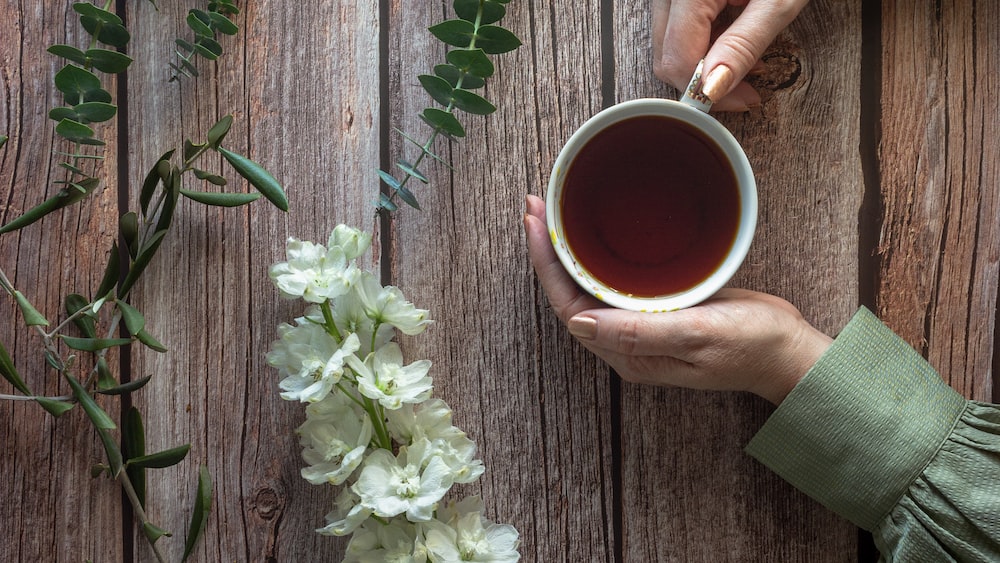
FAQs
1. How often should I drink yellow tea for constipation relief?
To achieve constipation relief, incorporating yellow tea into your routine is recommended, but the frequency can differ from person to person. Two to three cups a day is a common starting point; however, monitoring your body’s response is key to finding your ideal rhythm.
2. Can yellow tea interact with medications?
Yellow tea can interact with medications due to its caffeine and polyphenol content, despite its benign reputation. It’s especially important to consult your healthcare provider if you’re on blood thinners or heart medications, as yellow tea can sometimes tango too closely with these drugs.
3. Is yellow tea safe for everyone?
Yellow tea is generally safe for most tea lovers, but it’s not an all-access backstage pass. Pregnant women, young children, and those with certain medical conditions should raise a questioning eyebrow and seek medical advice before turning to the yellow elixir.
4. How long does it take for yellow tea to alleviate constipation?
The time it takes for yellow tea to alleviate constipation varies, but one might typically expect to see effects within a day or two. Of course, this assumes you’re also composing your own symphony of digestive wellness, complete with dietary and lifestyle harmonies in tune with yellow tea’s soothing melodies.
Conclusion
In this grand opera of digestive health, yellow tea for constipation stands not as a brute force but as a genteel maestro – composing a symphony of gentle relief with every refined sip. Remember, combating constipation isn’t a sprint; it’s a delicate waltz between teas, lifestyle choices, and sometimes the helping hand of medicine, with each step choreographed to your body’s unique rhythm.
- Embrace the ritual of tea time not just for tradition, but as a refined embrace of bodily harmony and health.
- Consider dietary adjustments, like increasing fiber, to imbue your regimen with a symphony of wellness.
- Let exercise be the rhythm to your body’s digestive cadence, enhancing the symphonic movements of yellow tea.
As we part ways on this journey through the tapestry of teas and the ebb and flow of digestive tides, I raise my cup to you, dear reader, and to the vibrant mosaic of health and harmony that we’ve explored together. May your cup always brim with well-being. Until we clink our porcelain again, keep steeping and smiling.
With warmth and a sprig of mint for good measure, Zoe


